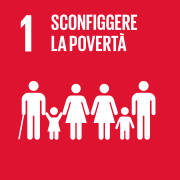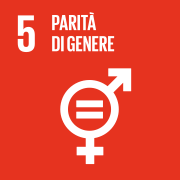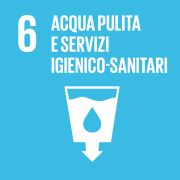
In recent years, eating disorders have been on the rise, increasingly affecting young people between the ages of 12 and 14. In Italy alone, an estimated three million people suffer from this type of disorder. In 2023, 3780 deaths related to this disorder were recorded, making it the second leading cause of death among young people, right after road accidents.
It is precisely these numbers, which are particularly worrying, that prompted the Foundation for Digital Sustainability to create mySMART Diary: the first web app at international level created to support therapists (psychologists, psychiatrists and child neuropsychiatrists) to improve the condition of patients suffering from eating disorders (DCA), presented this morning at the Senate Press Room. “In recent years, childhood and adolescent mental health issues have dramatically increased, both in number and complexity. This has imposed the need for greater collaboration between the various institutions to identify new ways and strategies for the early interception of needs and innovative treatment interventions,” emphasised Simona Chiodo, Director UO NPIA Attività Territoriale (SC) Azienda USL di Bologna, the project’s scientific partner.“Meeting the Foundation and being able to be part of this network, participating in this innovative project, for the Azienda USL di Bologna, in particular for the complex unit of NPIA Territorial Activity, is a great accelerator of opportunities: with the help of artificial intelligence, therapists will be provided with support to optimise interventions for users, in this case in particular with regard to nutrition and eating disorders. Especially for those dealing with the developmental age, having innovative digital tools at their disposal allows, using modern communication channels well known to children, to enter even more into their world and to understand it better‘.
The project is aimed at therapists at Eating Disorder Centres (DCA), and was realised in collaboration with Microsoft Italy – which provided the artificial intelligence platform – and Almawave – which in turn developed the application, interfaces and dashboard. It was also made possible by the contribution of Deda.Next, DXC Technology Italia, R1 Group and Sopra Steria, partners of the Stati Generali della Sostenibilità Digitale. “mySMART Diary is an innovative tool that helps patients to easily and effectively monitor their eating habits. This app is a valuable complement, as it promotes self-assessment,” explained Rahul Gupta, Director of the Centre for Psychiatric Disorders in Chur, the project’s scientific partner.“For me, mySMART Diary is a state-of-the-art tool that supports both therapists and patients in achieving the best results and significantly improving care.”
“mySMART Diary is a digital diary designed to support those suffering from eating disorders, allowing them to monitor not only their eating behaviour, but also to highlight underlying emotional and relational disturbances,” commented Giuliano Castigliego, Scientific Director of mySMART Diary, specialist in Psychiatry and Psychotherapy and member of the Foundation for Digital Sustainability. “It is a very useful tool for therapists, as it provides us professionals with a lot of medical and psychological information at a glance, freeing up time and resources for better patient care, and invites patients to improve their ability to understand their own and others’ emotions. I am very happy to have seen this proposal of mine so enthusiastically accepted, both by the States General community and, of course, by the Foundation‘.
mySMART Diary: what role in therapy?
The project, which uses artificial intelligence tools and mentalisation models, is therefore based on the principle of monitoring eating habits in the treatment of patients with DCA. The first function offered by the web app is that of enabling the digital recording of eating behaviour in the digital food diary: the patient can use his or her smartphone to note down his or her food-related behaviour, and add to this the recording of the event that he or she believes triggered or influenced that behaviour and what emotions he or she felt at that time. The type of eating behaviour, the triggering event and the emotion felt create a trigger that activates the AI: the latter suggests to the user the reading of a specific story selected on the basis of the information provided, taken from tales that are particularly close to the sensitivity of today’s young people, inviting the user to grasp the main meaning of the story and, subsequently, to identify with the characters and reflect on what he would have done in their place, what thoughts he would have had and what emotions he would have felt in performing certain actions.
Through this interaction, the AI develops an understanding of the narrative provided by the patient and is able to draw up a mentalisation profile to assess the person’s ability to understand their own thoughts and emotions, as well as the thoughts and intentions of those with whom they relate. The mentalisation profile is then made available and displayed on the therapist’s dashboard, who can compare it with his or her clinical impressions and evaluations, thus facilitating his or her work.
Artificial Intelligence therefore plays a crucial role in this project, demonstrating how, if addressed in a sustainable manner, it can be an extraordinary tool for the benefit of the community. “Artificial intelligence is transforming our society in extraordinary ways, and its ethical and responsible use can generate unprecedented opportunities in all sectors and fields,” commented Matteo Mille, Chief Sales Enablement & Operations of Microsoft Italy. “mySMART Diary is a concrete example of how this technology can have a positive impact on people’s lives. We are proud to have made our solutions and expertise available for this important project“.
“The application of AI to projects like mySMART Diary concretely demonstrates how digital can make a difference in terms of efficiency, but also in terms of human and social impact,” added Valeria Sandei, CEO of Almawave. “Thanks to AI, it is possible to offer personalised support to those dealing with eating disorders, a valuable ally for therapists and patients, freeing up time and resources for more human and deeper care. Almawave and its parent company Almaviva have always been committed to technologies that put the person at the centre“.
More specifically, great attention has been paid to two specific aspects: user privacy and the overall sustainability of the application. In relation to the first point, mySMART Diary uses a ‘stateless’ Artificial Intelligence engine, i.e. one that does not retain memory or context of past interactions during a session or between sessions. Each request or input is treated in isolation and independently, without keeping track of what was said or done previously. As for the second point, the application was developed by adopting the UNI 147:2023 practice developed by the Foundation itself for UNI, the Italian Standardisation Body.
Deriving value from collaboration
The web app, which will soon be tested at the psychotherapy department of the Psychiatric Services of the Canton of Graubünden (Switzerland) and at theAzienda USL of Bologna, was born from the strong impulse of the Stati Generali della Sostenibilità Digitale community. From the vision of more than one hundred CIOs of some of Italy’s leading companies and organisations who, through and together with the Foundation for Digital Sustainability, have chosen to make their expertise available, and from the will of some companies that have decided to invest in the project to demonstrate that digital sustainability is not just theory, but also – and above all – a great opportunity for society. “mySMART Diary was created as part of the Digital4Aid programme, a charity initiative promoted by the Foundation with the support of the partners of the Stati Generali della Sostenibilità Digitale,” explained Stefano Epifani, President of the Foundation for Digital Sustainability. “The aim is to annually develop innovative solutions that, thanks to digital sustainability, can address the challenges posed by the Sustainable Development Goals (SDGs) of Agenda 2030 by demonstrating how digital technology, correctly approached, is an indispensable tool for sustainability.”
The next appointment of the community will be on 8 and 9 November 2024, in Bologna, in the setting of Palazzo di Varignana: two days of work and aggregation, which will represent an important new step to develop solutions and practices to make Digital Sustainability a strong point for the country system.
Therapists who wish to join the programme may do so by writing to: [email protected]
















